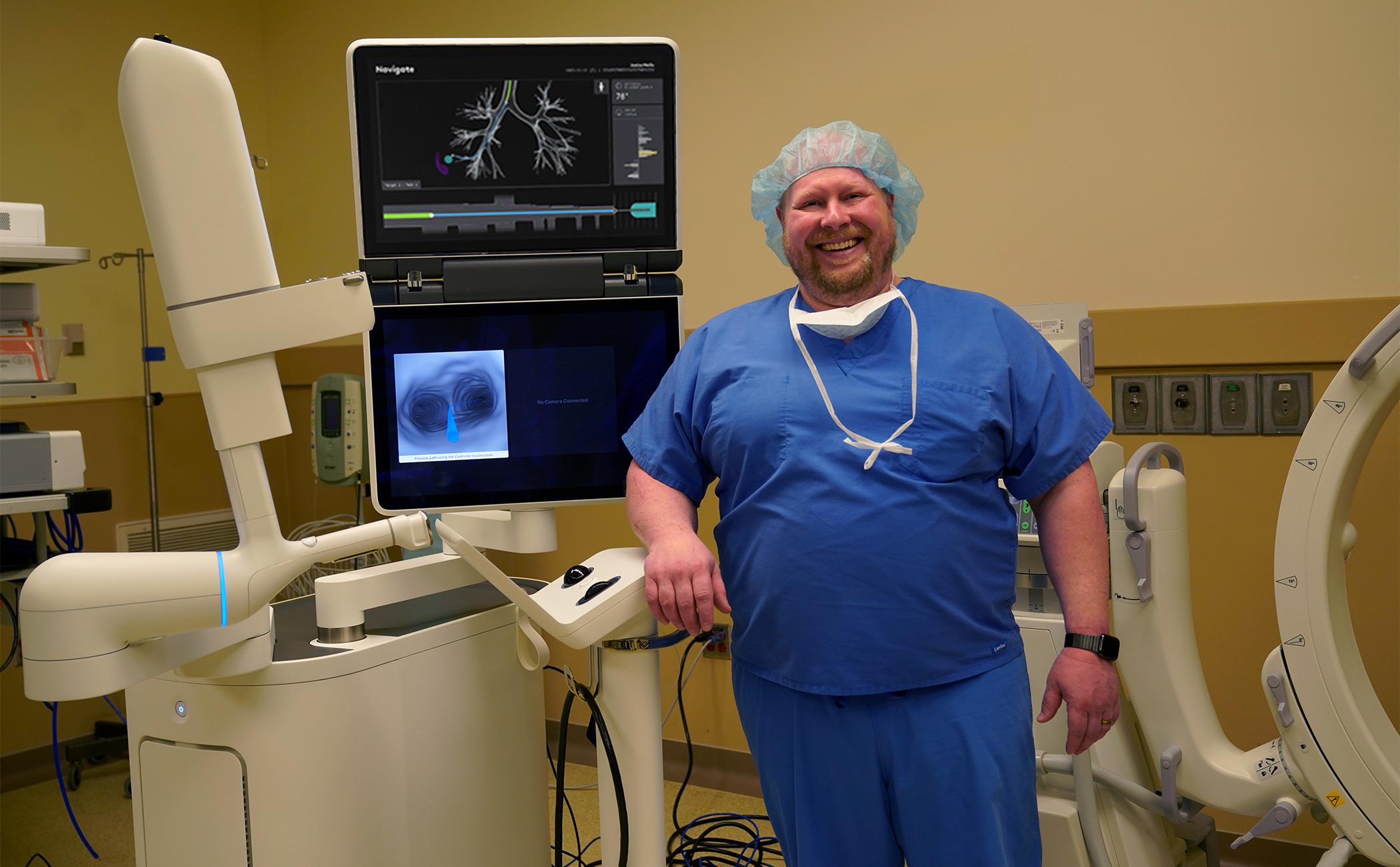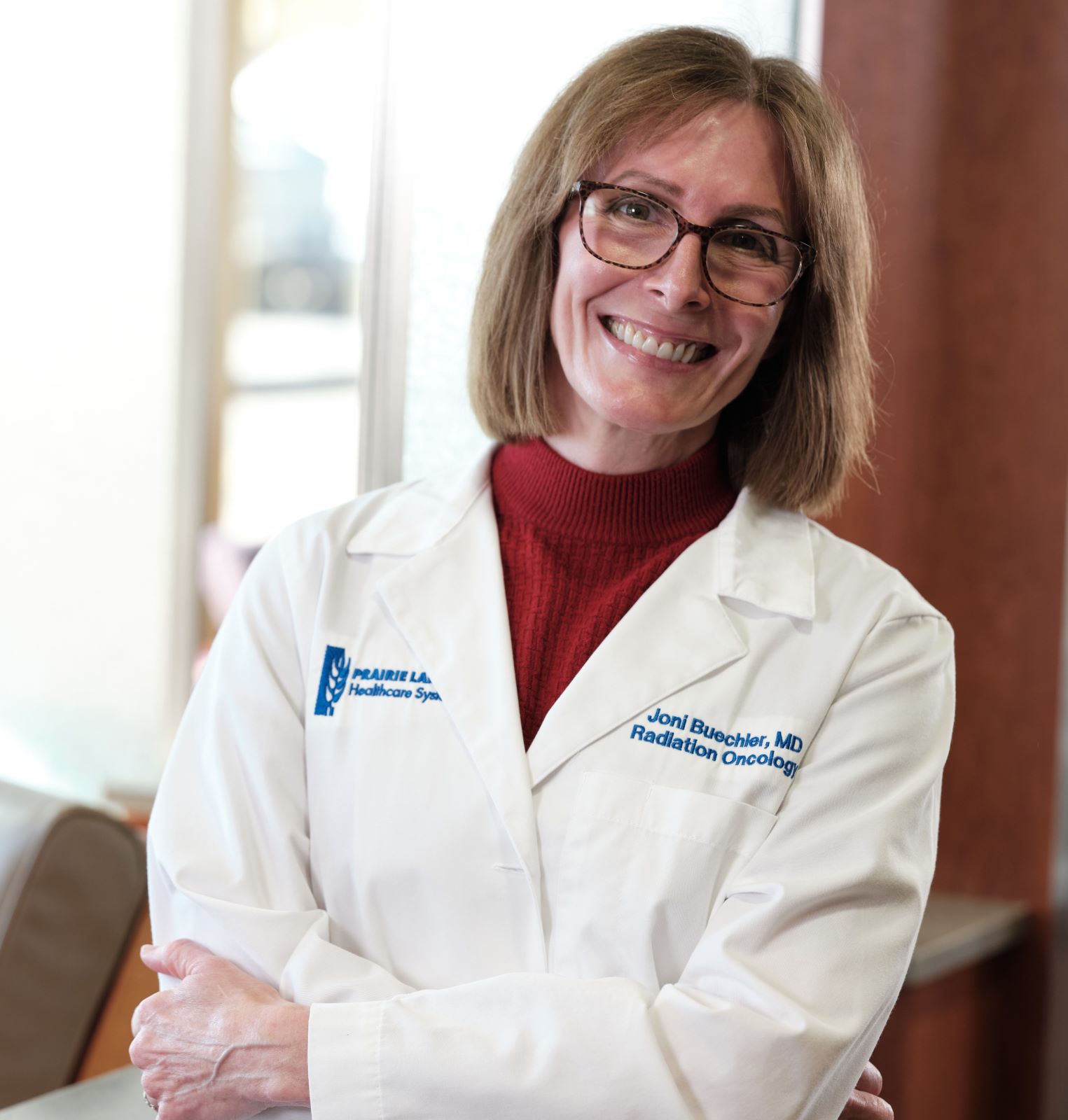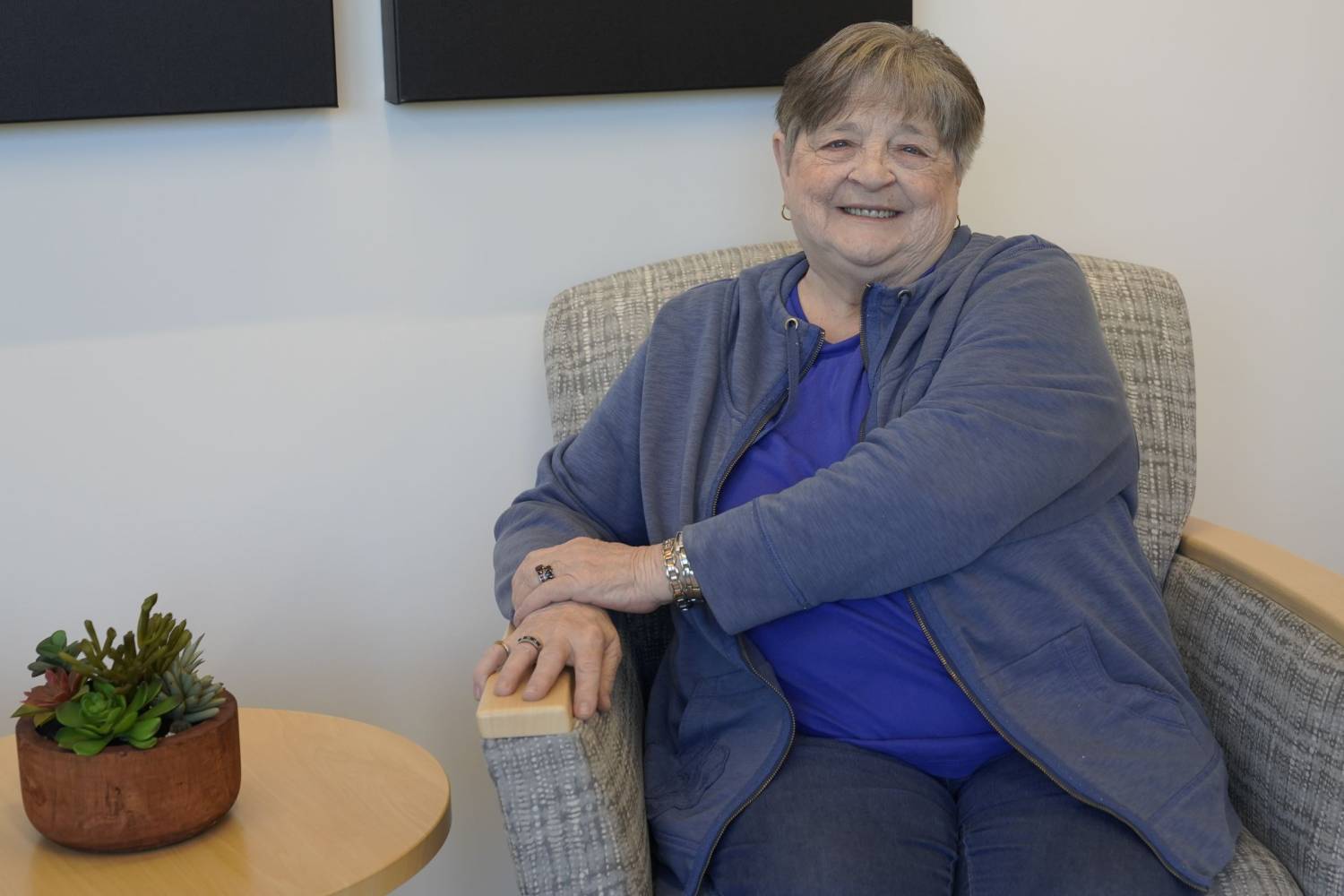Rita Grim, an Ortonville resident since 2008, was having a hard time catching her breath after recovering from a heart attack years earlier in 2002. Rita had been seeing an Ortonville-based Nurse Practitioner regularly to help her figure out what was causing her shortness of breath – she was tested for a variety of difference disorders and diseases and tried different inhalers without much improvement.
Her Nurse Practitioner eventually suggested that Rita make an appointment with Dr. Svien Senne, Pulmonologist from the Prairie Lakes Pulmonology Clinic to continue her search for a diagnosis. Dr. Senne began by ordering a CT scan of Rita’s lungs. He confirmed that she did not have COPD or lung disease. However, he did find a very small mass on the top of her left lung – “too small to make a definitive conclusion that it was lung cancer” so he decided to keep an eye on it and ordered a CT scan every three months. Dr. Svien Senne with Ion Robot
Dr. Svien Senne with Ion Robot
In January 2024, after several CT scans showing only the slightest growth of the mass on her lung, Dr. Senne finally exclaimed to Rita, “I’m tired of seeing you!” to which she replied only with a puzzled and defeated look. He explained, “No, I mean in a good way! Aren’t you tired of coming in for these tests that aren’t giving us any answers? I’d like to get to the bottom of this and soon.” He added, “I’d really like to sit across from you one day, hold your hand, and say ‘Rita, you are cancer free!’”
After conferring with Dr. Joni Buechler from the Prairie Lakes Cancer Center, Dr. Senne decided to try a proactive approach. He asked Rita if she would be willing to undergo an ION robotic bronchoscopy – a brand-new cancer detection procedure that allows doctors to take a deeper and more concise look at the lungs and air passages for an earlier and more definitive diagnosis. After the minimally invasive procedure, Rita had the answer she needed - Dr. Senne was able to confirm that the mass in her lung was cancer.
 Dr. Joni Buechler, Radiation OncologistDr. Senne and Dr. Buechler immediately went to work and prescribed five radiation treatments to “blast” the mass before it got even larger and became more difficult to overcome. Dr. Buechler and her team immediately went to work and created a plan utilizing SBRT (Stereotactic Body Radiotherapy). The tumor was precisely targeted, and high doses of radiation were given in five every-other-day treatments. Rita’s SBRT treatment took about 10 minutes each day. When her course of treatment was complete, she got to ring the Cancer Center Bell. Rita shared, “It was just so heartwarming that so many people came out of their offices and out from behind their desks to clap for me.”
Dr. Joni Buechler, Radiation OncologistDr. Senne and Dr. Buechler immediately went to work and prescribed five radiation treatments to “blast” the mass before it got even larger and became more difficult to overcome. Dr. Buechler and her team immediately went to work and created a plan utilizing SBRT (Stereotactic Body Radiotherapy). The tumor was precisely targeted, and high doses of radiation were given in five every-other-day treatments. Rita’s SBRT treatment took about 10 minutes each day. When her course of treatment was complete, she got to ring the Cancer Center Bell. Rita shared, “It was just so heartwarming that so many people came out of their offices and out from behind their desks to clap for me.”
Rita then needed to wait another three months before a final CT scan post-radiation to find out if the treatment was successful. She walked in to meet with Dr. Senne one more time. After he explained to her that the mass had turned mainly into scar tissue, she then looked at him expectantly. He finally remembered and grabbed Rita’s hand and explained, “Rita Grim, you no longer have lung cancer!” Rita shared, “He gave me such a big, warm hug that I could tell he really cared about me as a person – not just about my disease.”
Rita shared her story in the hopes of helping others that may be going through a similar health scare. She offered this advice, “If you can’t breathe at night, or after walking, or doing things that shouldn’t really take your breath away – you need to see somebody. Don’t wait! Take the tests, get the scans done. Figure out what it is early enough to take care of it.”
When asked about her patient care experience at Prairie Lakes Healthcare System, Rita shared, “I highly recommend Dr. Senne. He was so assertive in getting to the bottom of what was wrong with me. It was like he took it on as his own personal mission.” She added, “Joni Buechler and Dr. Senne worked so well together – it made it easy [for me as the patient] since they shared all my files and worked together for complete, comprehensive care. They each explained things in a way that I could understand.”
Rita offered a one last bit of insight, “It’s so nice to know that small town patients can still receive good, quality healthcare, right it our area.”
Learn More About our Advanced Lung Cancer Detection Technology
